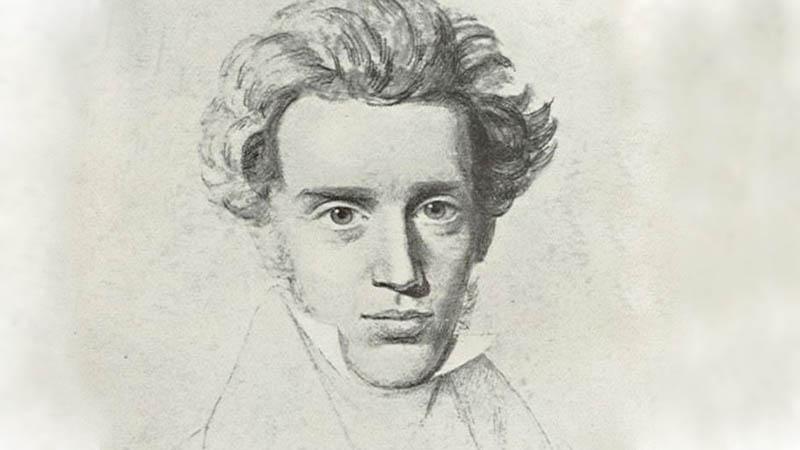Soren Kierkegaard
Episode #6 of the course Great modern philosophers by Tom Butler-Bowdon
In a nutshell: Total trust in an absolute or spiritual reality is not a weakness, but rather life’s highest expression.
To Danish philosopher Soren Kierkegaard, it seemed that in the modern age, everyone begins by doubting everything.
The opposite of doubt is faith, and Kierkegaard had long been fascinated by the story of the Old Testament’s Abraham, the “father of faith.” His Fear and Trembling (1843) recounts the three-day journey of the biblical Abraham to Mount Moriah, where God has seemingly requested he go in order to sacrifice his son Isaac as an offering. Kierkegaard spends the book getting to grips with how Abraham could be willing to do such a thing. For Isaac was not just any child, but the only son of Abraham and Sarah and who had miraculously been given to them in their old age after many years of waiting. Thus, he was especially loved and cherished.
What happens? At the last minute, while Isaac is bound and a fire is being stoked, a ram comes into Abraham’s vision, and it is clear that the animal, not Isaac, is to be offered up. Abraham has been tested and found to be a man of the greatest faith.
To Kierkegaard, Abraham’s absolute willingness seems otherworldly, inhuman. After all, who would be willing to sacrifice their only child? At one level, Abraham is simply a murderer. However, because he is willing to follow through with what seems patently absurd if God wills it, Kierkegaard argues that his actions represent the height of being human. The leap of faith is what binds man to the Absolute. Beyond personal strength or self-sacrifice is the greatness of one who is willingly “powerless,” giving all power to God.
Such a person can, to the rest of humanity, seem to follow a path that is mad or absurd, but only because they are not depending on earthly wisdom or reason. If God moves in mysterious ways, then the person who is simply a vehicle for God will also sometimes seem to act beyond reason.
Kierkegaard describes Abraham’s leap of faith as a “movement,” one that appears to demand the giving up of everything—and yet finally delivers everything to Abraham. Not only was Isaac given back to Abraham, but he was given a new Isaac, even more wonderful than before, who would fulfill the prophecy of prosperity and fertility over many generations. Because he had recognized God as the source of everything first, Abraham now had absolute security of knowledge.
Though a leap of faith is the most difficult thing for us to do, by uniting us with what is universal, it is the only true security.
Knights of Faith
A “knight of faith,” Kierkegaard says, transforms the leap of faith into a gait—for this person, it is simply a normal way of being. He will happily bet his whole life on a single love or a great project. In contrast, most people’s lives are simply “running errands.”
Kierkegaard gives the example of a knight of faith in love with a woman. It seems that his quest is useless, and he admits as much. But then he makes one more “movement,” saying, “I nevertheless believe that I shall get her, namely on the strength of the absurd, on the strength of the fact that for God all things are possible.” On a purely human level, he admits his chances of getting the woman are zero, but this very impossibility forces him to make a leap of faith, knowing that only God can bring it about. He must believe the absurd in order for the Infinite to find expression. On our own strength, we grab at things in the world and don’t get them. But in faith, all is given to us, but only if we are willing to believe in what, on an earthly plane, seems ridiculous.
Final Word
Philosophy, Kierkegaard notes, slights faith as something inconsequential. In fact, philosophy cannot really tell us anything about faith because it is beyond words and concepts. Normal thought cannot really comprehend Abraham’s actions because normal thought in such situations is redundant.
Kierkegaard died in 1855. Wittgenstein described him to a friend as, “by far the most profound thinker of the last century. Kierkegaard was a saint.”
Tomorrow…Friedrich Nietzsche and the “will to power.”
Recommended book
Fear and Trembling by Soren Kierkegaard
Share with friends

